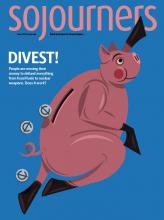Bio: Erika Totten is a leader in the Black Lives Matter movement in Washington, D.C., and the black liberation movement at large. She is a former high school English literature teacher, a wife, a stay-at-home mom, and an advocate for the radical healing and self-care of black people through “emotional emancipation circles.”
1. How did you get started with “emotional emancipation” work?
Emotional emancipation circles were created in partnership with The Association of Black Psychologists and the Community Healing Network. I was blessed to be one of the first people trained in D.C. I had been doing this work before I knew what it was called. My organization is called “Unchained.” It is liberation work—psychologically, mentally, spiritually, and emotionally.
I want to tell people to be intentional about self-care. Recently, we had a black trans teen, who was an activist, commit suicide. A lot of times you need to see a counselor or therapist, which is often shunned in the black community. Because of racism, we are taught that we need to be “strong.” But it’s costing us our lives. As much as we are dismantling systems, we have to dismantle anything within ourselves that is keeping us from experiencing liberation right now.
Read the Full Article

